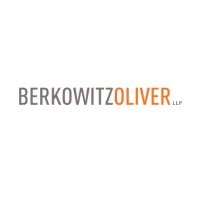Best Ethics and Professional Responsibility Lawyers in Kansas City
Share your needs with us, get contacted by law firms.
Free. Takes 2 min.
List of the best lawyers in Kansas City, United States
About Ethics and Professional Responsibility Law in Kansas City, United States
Ethics and Professional Responsibility law is a critical area of legal practice focused on the standards of conduct for professionals, particularly those in the legal profession. In Kansas City, this field ensures that lawyers adhere to ethical guidelines and professional standards, maintaining the integrity of their practice. It includes the investigation and sanctioning of unethical behavior by lawyers and other professionals. As Kansas City spans both Missouri and Kansas, legal ethics are governed by the rules and regulations of the respective state bar associations.
Why You May Need a Lawyer
There are several scenarios where individuals may need a lawyer specializing in Ethics and Professional Responsibility in Kansas City:
- Filing a complaint against an attorney for unethical conduct.
- Defending against allegations of professional misconduct.
- Understanding professional duties and potential conflicts of interest.
- Navigating complex situations in business or personal dealings that require ethical guidance.
- Assistance with professional licensing and regulation issues.
Local Laws Overview
In Kansas City, Ethics and Professional Responsibility are governed by state laws and professional codes of conduct in both Kansas and Missouri. Key aspects include:
- The Kansas Rules of Professional Conduct and the Missouri Rules of Professional Conduct, which provide frameworks for ethical practice for legal professionals.
- The Kansas and Missouri Bar Associations oversee the disciplinary processes for legal professionals, ensuring adherence to ethical standards.
- Each state’s legal system provides mechanisms for clients to report unethical conduct and for attorneys to dispute claims against them.
Frequently Asked Questions
What constitutes a violation of ethics in the legal profession?
Examples include conflict of interest, confidentiality breaches, misrepresentation, and financial misconduct.
How do I file a complaint against a lawyer in Kansas City?
You can file a complaint with the Missouri Bar's Office of Chief Disciplinary Counsel or the Kansas Disciplinary Administrator, depending on the attorney's jurisdiction.
Can I represent myself in an ethics-related legal matter?
Though you can represent yourself, it is advisable to consult with a specialized attorney to navigate complex rules and proceedings effectively.
What are the potential consequences for a lawyer found guilty of misconduct?
Consequences range from fines and restitution to suspension or disbarment from practicing law.
Do ethics violations apply only to lawyers?
No, other professionals may be held to ethical standards by their respective licensing or regulatory bodies.
How are ethics rules created and enforced?
Rules are created by state bar associations and enforced by disciplinary bodies specific to legal and professional practice in each state.
Can ethics rules change, and how often?
Yes, ethics rules can change, usually through periodic reviews and updates by state bar associations to address evolving legal and professional standards.
Is there a statute of limitations for filing ethics complaints?
The timeframe for filing can vary by jurisdiction, so consulting specific state regulations in Kansas and Missouri is crucial.
Can clients receive compensation for lawyer misconduct?
Yes, clients may be entitled to restitution or compensation if damages are proven as a result of attorney misconduct.
What role do ethics play in legal education and training?
Ethics training is a fundamental component of legal education, ensuring lawyers understand and commit to maintaining professional standards.
Additional Resources
Consider reaching out to these organizations and resources for additional information:
- Kansas Bar Association: Provides resources and support regarding ethics rules and complaints.
- Missouri Bar Association: Offers guidance on handling grievances and understanding professional conduct rules.
- American Bar Association: A national resource for ethical guidelines and professional responsibility standards.
- Legal Aid of Western Missouri: Offers support and resources for those needing legal assistance.
Next Steps
If you need legal assistance in Ethics and Professional Responsibility, consider these steps:
- Identify the Jurisdiction: Determine whether your issue falls under Missouri or Kansas jurisdiction.
- Consult a Specialist: Reach out to attorneys who specialize in Ethics and Professional Responsibility for initial advice.
- Gather Documentation: Collect any relevant documents or evidence related to your legal issue.
- Schedule Consultations: Meet with potential attorneys to discuss your case and potential strategies.
- Evaluate Your Options: Consider the advice and choose an attorney best suited to your needs.
- File a Complaint or Defense: Work with your attorney to proceed with filing a complaint or building a defense as necessary.
Lawzana helps you find the best lawyers and law firms in Kansas City through a curated and pre-screened list of qualified legal professionals. Our platform offers rankings and detailed profiles of attorneys and law firms, allowing you to compare based on practice areas, including Ethics and Professional Responsibility, experience, and client feedback.
Each profile includes a description of the firm's areas of practice, client reviews, team members and partners, year of establishment, spoken languages, office locations, contact information, social media presence, and any published articles or resources. Most firms on our platform speak English and are experienced in both local and international legal matters.
Get a quote from top-rated law firms in Kansas City, United States — quickly, securely, and without unnecessary hassle.
Disclaimer:
The information provided on this page is for general informational purposes only and does not constitute legal advice. While we strive to ensure the accuracy and relevance of the content, legal information may change over time, and interpretations of the law can vary. You should always consult with a qualified legal professional for advice specific to your situation.
We disclaim all liability for actions taken or not taken based on the content of this page. If you believe any information is incorrect or outdated, please contact us, and we will review and update it where appropriate.










